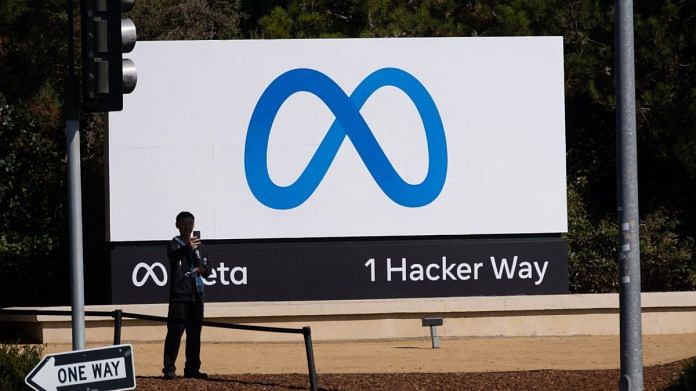
Thank you dear subscribers, we are overwhelmed with your response.
Your Turn is a unique section from ThePrint featuring points of view from its subscribers. If you are a subscriber, have a point of view, please send it to us. If not, do subscribe here: https://theprint.in/subscribe/
Facebook (now Meta) plans to introduce a fantasy world called Metaverse. It also believes that the Metaverse is the next big thing on the internet. For the uninitiated, Metaverse is an immersive virtual world, much like virtual reality, where people could spend time together and share experiences. I got a lot of opinionated messages about Metaverse from my friends through WhatsApp forwards and “Explain that stuff” sort of articles in my email.
Carefully sifting all the opinions, I concluded that Metaverse might be immersive and surreal but not novel. No, dear reader, I do not intend to sound pretentious here. Humans already live in a fantasy world through their stories and narratives.
As cringeworthy as it might be, I have often imagined myself as a superhero during my childhood. When I was alone, I would take anything lying around me and imagine that I was wielding a sword and fighting with literally no one in the physical entity but with aliens in my mental entity. I have had record-breaking partnerships with Sachin Tendulkar, advised Dhoni to set an aggressive fielding to take the wicket of Mike Hussey.
When I became a teenager, I imagined romance. If I go into graphic detail about this, you might give up reading blogs forever. Not very long ago, when I was preparing for civil services, I imagined myself as a Baahubali Collector who would stun his opponents and awe his supporters. I know it is a cringe overdose, but I think I have made my point. We live in fiction.
When I say we live in fiction, most of you would feel, Duh! So what? We all know that we have our own private lives and stories. What is the need to unnecessarily prate on this? Think, dear reader. If you were laughing at my stupid fantasy, weren’t you also smiling at yourselves? Sometimes, recounting an obvious thing might give us fresh perspectives. We find comfortable to live in fiction than in reality. The complex phenomena in the real world are too tangled for us to comprehend fully. Hence our brains need to build a model, which might be fiction sometimes, to make sense of reality.
Consider money. Without it, our interactions would vanish instantly. We would cease to cooperate on a grand scale. But if we think on a meta-level about money. It is nothing but an ingenious fiction that drives the world. The whole theory of valuation and market force depends upon our collective imagination. In this ted talk, Mr Yual Noah Harari, author of the popular book Sapiens, says, governments, corporations, international organizations are all elaborate fictions, without which humans cease to rule the world.
A few years ago, my friend introduced me to an essay by a renowned architect, Charles Correa, titled The Public, the Private and the Sacred. Its introductory passage reads, “We live in a world of manifest phenomena. Yet, since the beginning of time, man has intuitively sensed the existence of another world: a nonmanifest world whose presence underlies — and makes endurable — the one he experiences every day. The principal vehicles through which we explore and communicate our notions of this nonmanifest world are religion, philosophy, and the arts.” We know that religions have always been a fantasy throughout their existence.
They provide an alternate reality (some call it spiritual experience) to such an extent that Karl Marx called them “opiate of masses”. Now, why do I bring this when Facebook has introduced Metaverse? There is some sense of comfort when we live in our fictional reality. It is our coping mechanism with the physical realm. In a sense, we impose our meanings, patterns and perspectives on things around us. With the advent of social media, there is a perceived decline in our fictionalization of things. Their addictive algorithms paralyze our brains, making us heavily dependent on the carefully constructed environment built by these social media companies.
This gradual loss of our fiction-making ability is impacting us in so many ways. We experience life in a less concentrated and ordered form. We rarely enter into a highly focused mental state, which is conducive to our productivity. Our discourses have become shallow. We view the world in a much narrower sense.
While we are grappling with all these problems, Facebook promises us an even more reality escaping, immersive environment. Could this immersive reality make us incapable of creating fictional realities for ourselves? By entering into this Metaverse, are we giving up our capacity to build our universes? But more importantly, do we have the choice of choosing between Metaverse and our universe? I am not clairvoyant enough to predict the logical outcome of this venture. But that doesn’t stop me from being optimistic about our innate resilience.
Also read: Goodbye, Facebook; Hello, Meta — Why name change reflects poor judgement by Zuckerberg
These pieces are being published as they have been received – they have not been edited/fact-checked by ThePrint.

COMMENTS